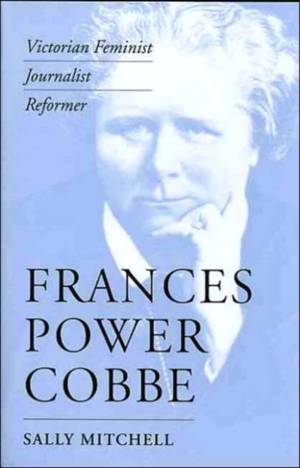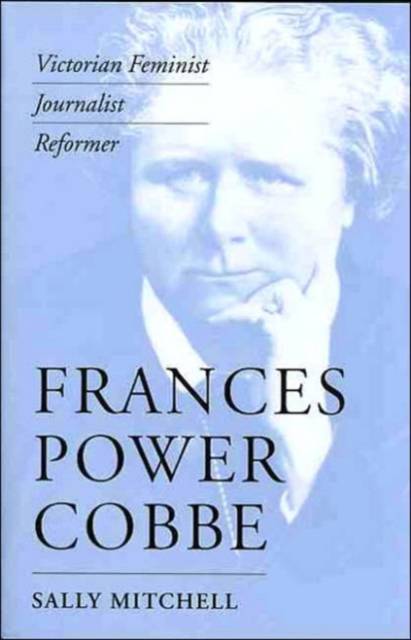
- Retrait gratuit dans votre magasin Club
- 7.000.000 titres dans notre catalogue
- Payer en toute sécurité
- Toujours un magasin près de chez vous
- Retrait gratuit dans votre magasin Club
- 7.000.0000 titres dans notre catalogue
- Payer en toute sécurité
- Toujours un magasin près de chez vous
Description
Frances Power Cobbe (1822-1904) is the most important nineteenth-century British writer and activist not heretofore treated in a full-length biography. An independent professional woman, she worked to improve conditions for delinquent girls and for the sick poor, promoted university degrees for women, roused support for the Union during the American Civil War, advocated for victims of marital violence, campaigned for women's suffrage, and engaged in a long-running battle with leading physicians decrying the use of animals in medical experiments. She was centrally located among the circle of London intellectuals who engaged the era's significant debates and was a respected religious and moral thinker as well. Bridging the gap between "high" and "low" journalism, she published in prestigious journals as well as in popular monthly magazines. At long last, Sally Mitchell gives this remarkable woman her due.
The only source of information about Cobbe's life has been her 1894 autobiography--and even that is considered by many scholars to be less than forthcoming. Over the past several years, Mitchell has unearthed extensive material by or related to Cobbe, dramatically increasing and updating the information now available about this major figure in social and literary history. She has transcribed hundreds of Cobbe's unpublished letters, drawn on archival papers and records for information about Cobbe's family and places where she lived and worked, and supplemented all the newly available material with instructive selections from Cobbe's anonymous journalism as well as other publications. Further, through the cooperation of Cobbe's heirs, Mitchell has been able to use significant materials that remain in private hands, including family letters and account books, a diary Cobbe's father kept during her first thirty-four years, a manuscript account of her 1858 journey to Egypt and Palestine, and a number of Cobbe's sketchbooks and photograph albums.
An accessible narrative biography, Frances Power Cobbe traces the details of Cobbe's life and work, analyzes her writing, and sets both in the context of the social and intellectual debates of her time.
Spécifications
Parties prenantes
- Auteur(s) :
- Editeur:
Contenu
- Nombre de pages :
- 400
- Langue:
- Anglais
- Collection :
Caractéristiques
- EAN:
- 9780813922713
- Date de parution :
- 29-05-04
- Format:
- Livre relié
- Format numérique:
- Genaaid
- Dimensions :
- 164 mm x 241 mm
- Poids :
- 843 g

Les avis
Nous publions uniquement les avis qui respectent les conditions requises. Consultez nos conditions pour les avis.






